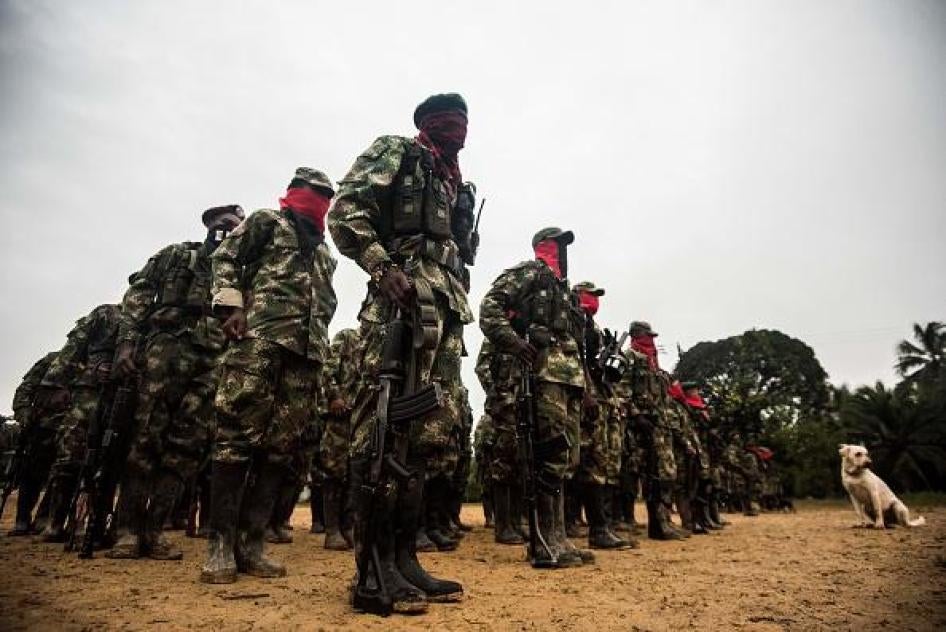(Washington, DC) – The Colombian armed group known as the National Liberation Army (ELN) should unconditionally release all kidnapped people and reveal what happened to any who have died, Human Rights Watch said today.
Peace talks between the Colombian government and the ELN have been suspended since President Iván Duque took office in August 2018. Duque has said his government is willing to reinitiate talks if the group halts kidnappings, releases all captives, and “ends its criminal activities.” On October 19, Pablo Beltran, the ELN commander who heads the group’s negotiating team, told reporters that releases should be discussed at the negotiating table.
“Vulnerable communities across Colombia suffer terrible abuses at the hands of the ELN, and a peace agreement could eventually bring relief,” said José Miguel Vivanco, Americas director at Human Rights Watch. “But stalled negotiations are no excuse for holding civilians hostage.”
The number of people the group is holding is unclear. On October 18, the government’s high commissioner for peace, Miguel Ceballos, told reporters that the ELN is holding “more than 10” people kidnapped. Several newspapers have released lists of 10 people reportedly kidnapped. They include several who, according to press reports, could have died in ELN custody. Among them is Javier Enrique Alvernia González who was kidnapped in January 2014. A police commander told the press in 2016 that he had died in custody.
Beltran said in an interview that some of the 10 cases had been “falsely attributed” to the ELN. He did not clarify which.
In April, “Pablito,” an ELN commander in the eastern province of Arauca, told reporters that his troops were holding José Leonardo Ataya Rodríguez, a public utility manager in Arauca, and Rafael Andrés Riaño Barrero, an employee of the oil company Ismocol. Ataya’s father told reporters that he had visited a guerrilla camp in Venezuela to negotiate his son’s release.
On October 24, Ceballos announced two more kidnapping victims for whom Colombian security forces hold the ELN responsible: Diana Maria Toro Vélez, a businesswoman who was kidnapped on September 27 in the Amaga municipality, and Fredy Arlendy Rangel Carmona, a security worker in a commercial firm, who was kidnapped on July 24, in the Andagoya municipality. The ELN has not claimed responsibility in these cases.
The ELN has repeatedly engaged in kidnappings. On September 7, for example, the group kidnapped 15-year-old Mayerli Cortés Rodríguez, whom it accused of being a government informant. She was released on September 19.
The ELN has consistently held that international humanitarian law (IHL) does not prohibit kidnappings. On September 21, the group tweeted that “kidnappings do not exist under IHL. Detention of soldiers, police, and contractors on behalf of the ELN is a legitimate action.” Similarly, in April, “Pablito” told reporters that the ELN has a “right to retain people for economic or political purposes” because it is an “insurgent revolutionary organization.” He added, “If [the government] doesn’t want us to retain people, let’s find an agreement, that’s a task for the [negotiating] table.”
The abduction of civilians, commonly referred to as kidnapping in Colombia and labeled “retention” by the ELN, is a violation of international humanitarian law. Detaining someone to compel another party to take action to obtain their release is hostage-taking, which is a war crime, Human Rights Watch said.
“International humanitarian law prohibits hostage taking,” Vivanco said. “This obligation is one that cannot be open to negotiation.”







